
By Said G Osman.
Introduction
Today, countries around the world have various combinations of rules applied for governance. They are roughly grouped into categories based on the practice-levels of democratic and autocratic principles. Here is the list classification of models of governance: a) Working Democracy; b) Deficient Democracy; c) Hybrid Regime; d) Moderate Autocracy; and d) Hard Autocracy. On the scale of 0 to 1 (where 0 = No governance, and 1 = Best democratic governance), the best democratic nation in the world (based on the Dataset of the Democracy Matrix V.4) is Denmark, with the Total Value Index of 0.958. The worst Hard Autocracy government in the world is Eritrea coming # 178 on the list with the score of 0.017. Ethiopia is graded as a Hybrid Regime (mixture of democracy and autocracy) coming 128th on the Democracy scale with score of 0.351. Kenya is in the same category as Ethiopia but is 82nd, with the score of 0.576.
What determines a nation’s position on the list is not the size, geography, wealth/strength of a nation, or the era in which we live, but mainly the application of the principles of democratic governance! Today, focusing on the HoA and East Africa, specifically Ethiopia and Kenya, one witnesses the claims of democratic governance when in fact the trend is more and more autocratic and divisive, leading to increasing instability, especially in Ethiopia.
I wish I could give examples of democratic governance in the African societies in the centuries BC, but although not written the practices existed! Looking at European history, as early as the last century BC, Marcus Tullius Cicero, a Senator in the Roman Empire asked basic questions regarding governance: What is the foundation of a just government? What kind of rule is better? How should a leader behave? Philip Freeman wrote a book entitled: “How to Run a Country: An Ancient Guide for Modern Leaders.” This short anthology provides a sample of Cicero’s ideas that proves the uses and abuses of power have changed very little over the centuries!
Principles guiding responsible governance.
The following are some of Cicero’s concept of the best principles of governance (Philip Freeman):
- There are universal laws that govern the conduct of human affairs.
Cicero firmly believed that Almighty God rules independent of time and place we live in, guarantees fundamental freedoms to everyone, and controls the way in which governments should behave. The American Founding Fathers, most of them careful students of Cicero, wrote in the Declaration of Independence: “We hold these truths to be self-evident, that all men are created equal, that they are endowed by their Creator with certain unalienable rights, that among these are life, liberty and the pursuit of happiness.” The Declaration of Independence was written about 2.5 centuries ago and is the bedrock of the USA democracy today!
Man did not create the lands we call Ethiopia, Kenya, or any other country! Man did not pay the creator anything to own the land around which boundaries are built, in fact on the African continent the boundaries were not built by people who call themselves Ethiopians, Kenyans, etc. The boundaries were built by colonial powers from the European continent. It is long past the time when all human beings in Ethiopia, Kenya, etc., are treated as equals and given their unalienable rights of life, liberty, and pursuit of happiness!
- The best form of government embraces a balance of powers.
Even the most noble kings will become tyrants if their reign is unchecked, just as democracy will degrade into mob rule if there are no constraints on popular power. A just government must be founded on a system of checks and balances. Beware the leader who sets aside constitutional rules claiming the need for expediency or security!
As human beings we all have vulnerabilities. The more powerful the individual is, the higher and the more dangerous their vulnerabilities become! In that position, the leader of a country is not only a danger to the ordinary population and the country, but also to himself/herself and loved ones! History is replete with examples of that!
- Leaders should be of exceptional character and integrity.
Those who govern a country must possess great courage, ability, and resolve. True leaders always put the interest of their nation above their own. As Cicero says, governing a country is like steering a ship, especially when the storm winds begin to blow. If the captain is not able to hold a steady course, the voyage will end in disaster for all.
In addition to the possession of the above qualities, the leader must have humility and be humble – even self-effacing! This combination of qualities makes the leader and his/her administration focus on the nationally important tasks and produce results by which he/she desires to be identified, instead of focusing on himself/herself!
- Keep your friends close— and your enemies closer.
Leaders fail when they take their friends and allies for granted. Never neglect your supporters, but even more importantly, always make sure you know what your enemies are doing. Don’t be afraid to reach out to those who oppose you. Pride and stubbornness are luxuries you cannot afford.
As human beings, whether friends or foes, everyone has different combinations of personality characteristics. A friend may express opinions frankly without fear or may be shy and reluctant to offend! It is wrong to ignore a friend who openly disagrees with the leader, and it is important for the leader to seek the opinion of the quiet friend! Most importantly, just because a citizen openly disagrees with the leader it is wrong to consider him/her as an enemy because he/she may be seeing consequences of actions which the leader may not be aware of! Even if the citizen is openly hostile, attempts to find a common ground to resolve their differences is the safest way to interact with him/her. The alternative may, as is happening regularly especially in Ethiopia, to imprison, or even kill the foe! That increases insecurity for all including the leadership, hence for the nation.
- Intelligence is not a dirty word.
Those who govern a country should be the best and the brightest in the land. As Cicero says, if leaders don’t have a thorough knowledge of what they are talking about, their speeches will be a silly prattle of empty words and their actions will be dangerously misguided.
- Compromise is the key to getting things done.
Cicero writes that in politics it is irresponsible to take an unwavering stand when circumstances are always evolving. There are times to stand one’s ground, but consistently refusing to yield is a sign of weakness, not strength.
Compromising with the opposition to solve problems is the highest quality of a leader! To listen to those who normally don’t agree with the leader in order to get the best result for the nation is the epitome of Win-Win strategy and builds positive relationships with opposition and make future interactions productive.
- Don’t raise taxes— unless you absolutely have to.
Every country needs revenue in order to function, but Cicero declares that a primary purpose of a government is to assure that individuals keep what belongs to them, not to redistribute wealth. On the other hand, he condemns the concentration of such wealth into the hands of the few and asserts that it is the duty of a country to provide fundamental services and security to its citizens.
- Never start an unjust war.
Of course, the Romans, just like modern nations, believed they could justify any war they wanted to wage, but Cicero at least holds up the ideal that wars begun from greed rather than defense or to protect a country’s honor are inexcusable.
- Corruption destroys a nation.
Greed, bribery, and fraud devour a country from the inside, leaving it weak and vulnerable. Corruption is not merely a moral evil, but a practical menace that leaves citizens at best disheartened, at worst seething with anger and ripe for revolution.
Basic requirements of democratic governance and overt failures to exercise them:
In a democratic system, effective governance and communication by a leader are crucial for maintaining transparency, accountability, and public trust. As I mentioned in my prior postings, the country’s citizenry is the EMPLOYER of those in politics and government, including the leader of the nation. The latter are the EMPLOYEES of the citizenry. Here are some key principles for democratic leaders:
- Transparency and Accountability:
- Transparency is the cornerstone of democratic governance.Leaders should openly share information about policies, decisions, and actions with the public. Unlike the ordinary Employer-Employee relationship, the leader of the government is given the authority to evaluate situations and make decisions because the public trusted his/her judgement to make the right decisions. But that trust can only be maintained if the Public is well informed, and their approval obtained.
- Regular updates: Press conferences, and public reports help maintain transparency. It is not enough to call in a select group of trusted people of a Townhall meeting to express the governments views and plan, with the expectation that nobody in the audience will challenge the Prime Minister or the President. Avoid secrecy or withholding critical information. This is important because the consequences of the withheld information may be extremely serious for the nation whether it is the use of limited resources, conflict within or around the country, etc.
- Accountability ensures that leaders are answerable for their actions. Leaders should be willing to explain their decisions and accept responsibility. Even with the best interest of the nation at heart, outcomes of a given action may turn out to be negative – resources may be lost, lives may be lost, etc. It is important for the leader of the nation to be open, explain the reasons for his/her decision and accept the responsibility for the outcome. It is easy, especially as a national leader, to pass blame on to someone else. That is a low quality of someone who does not deserve a leadership position!
- Inclusive Decision-Making:
- Involve citizens in decision-making processes.Seek input from diverse groups, including marginalized communities. A national leader does not have answers to all problems which face the nation! Problems may be health issues, national wealth issues, internal/external conflicts, environmental issues, etc. The nation of millions of people has the potential of getting the best advice or vision from a totally unexpected source, so the PM or President has the opportunity to share his/her administration’s views while tapping into the public views, so that all will be in line when actions are taken. That way, resentments or rebellion is avoided.
- Participatory mechanisms: Use of town halls, surveys, and public consultations to gather feedback. This may be time-consuming and labor-intensive, but they are quick methods of getting as accurate an input from the public as possible.
- Decision-making: Avoid making decisions unilaterally; instead, foster collaboration and consensus-building.
- Effective Communication:
- Messaging: Craft clear and coherent messages that resonate with different audiences. Consider verbal, non-verbal, and written communication channels. Depending on the audience, the choice of language, simplification of the context, etc. will help the audience to understand what is being communicated.
- Context: Tailor communication to specific contexts. For instance, an informal staff conversation requires a different approach than a public press release.
- Clarity of message: Prioritize understanding and decoding by ensuring your messages are accessible and relatable.
- Engage Civil Society:
- Support civil society organizations that promote democratic values. Encourage dialogue, civic education, and community engagement.
- Collaborate with NGOs, advocacy groups, and grassroots movements to address societal challenges.
- Transparently engage with civil society to build trust and foster democratic norms.
- Promote Democratic Values Globally:
- Transparency: Use transparent means to support democratization regionally and across the continent. Encourage open dialogue, free media, and respect for human rights.
- Interventions: Avoid direct intervention and instead empower local actors to strengthen democratic institutions.
- Encourage: Uphold the spirit of democracy by championing fair elections, rule of law, and citizen participation . Eritrea is an absolutely “Hard Autocracy” and it can only be encouraged to change its governance by demonstrating the values of the Democracy for the citizens of Eritrea and the HoA region.

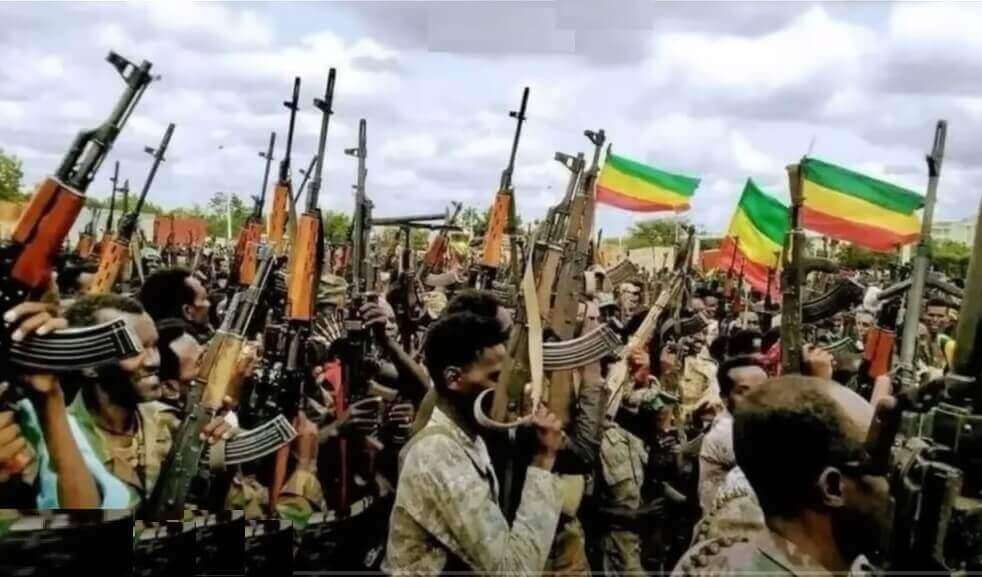
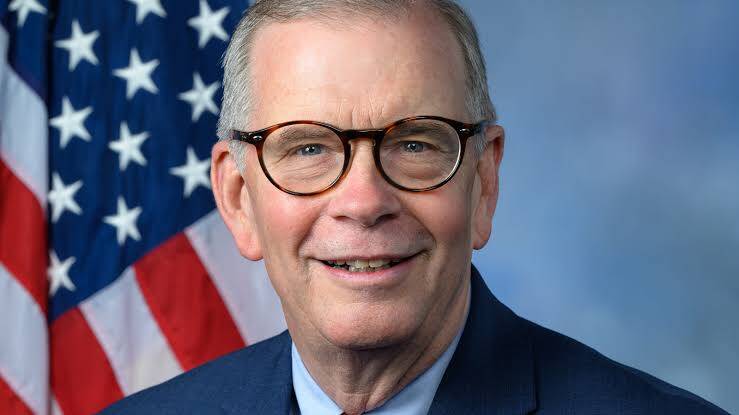


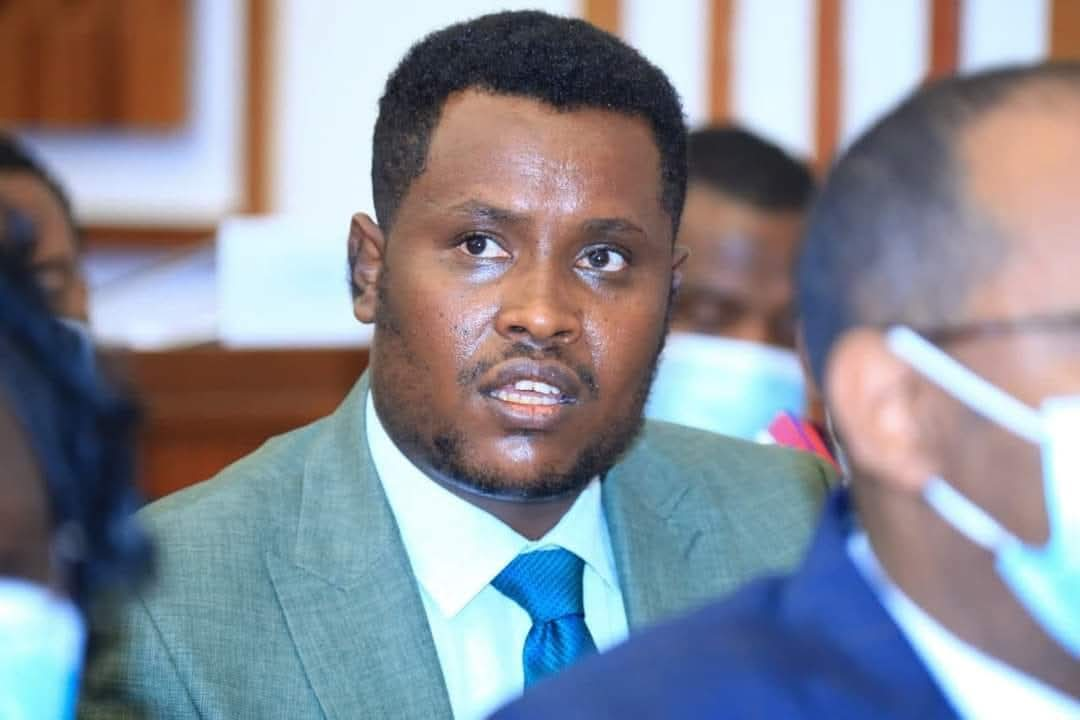


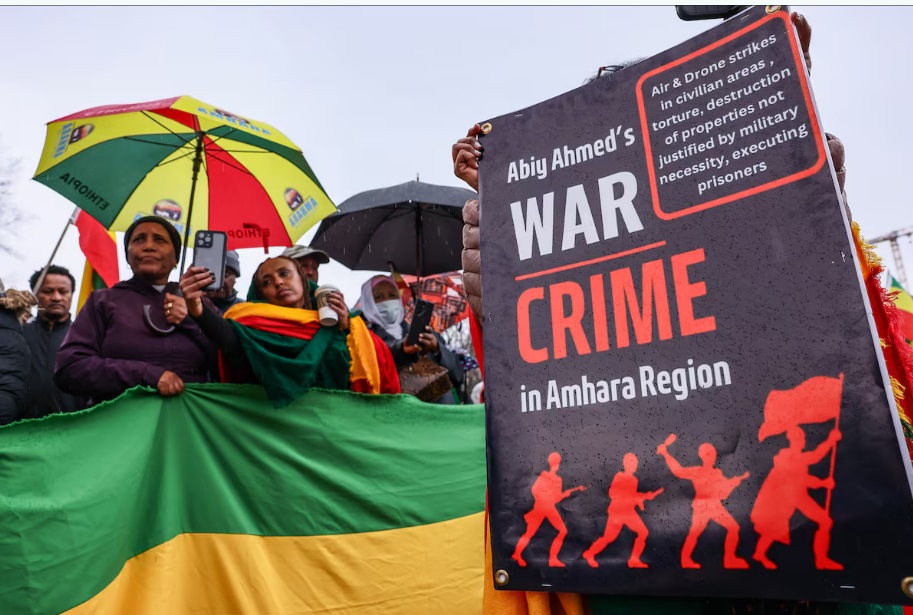

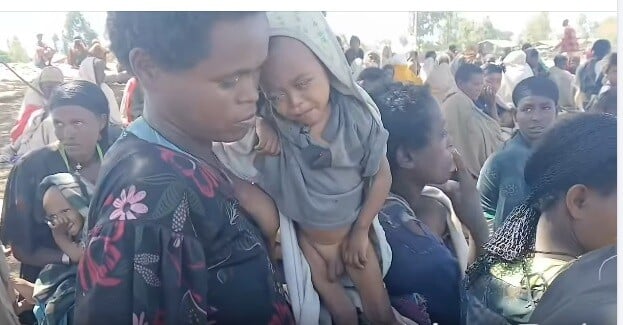


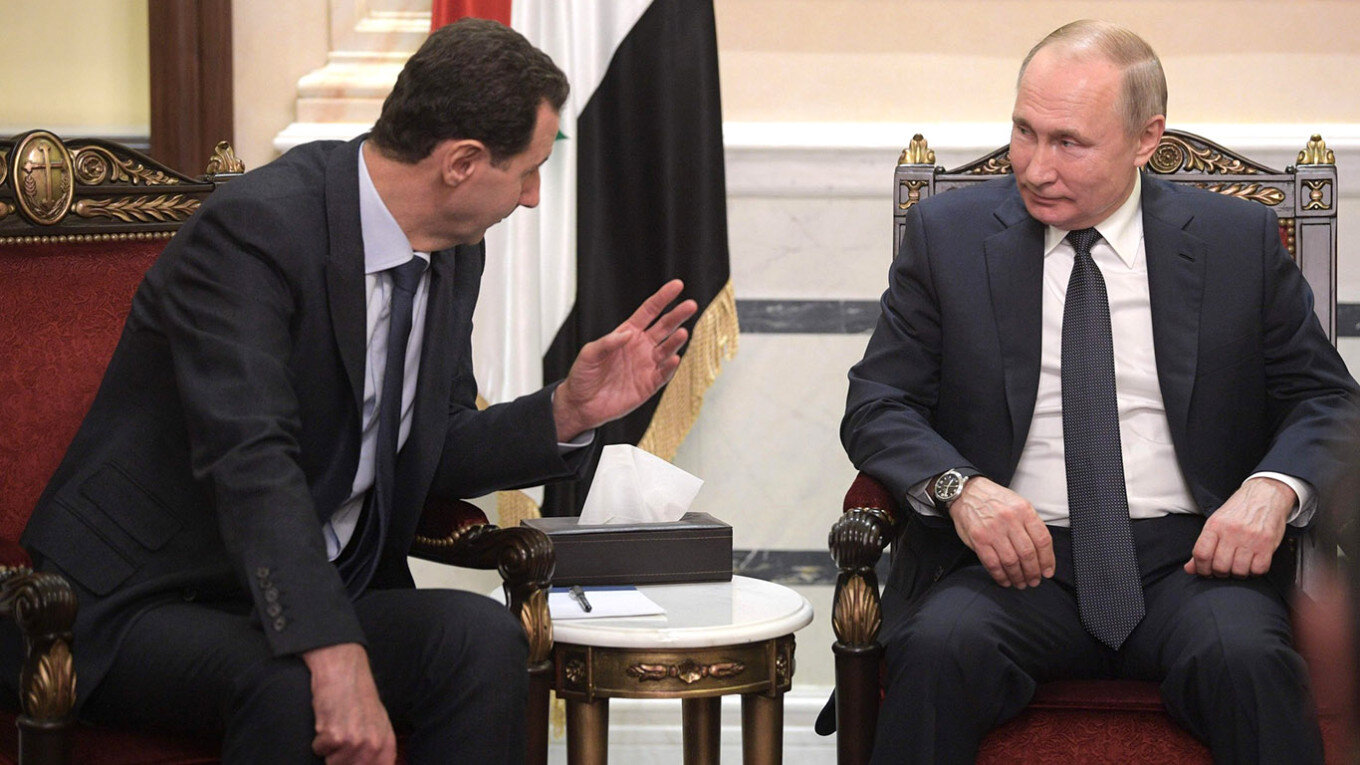



Cicero writes that in politics it is irresponsible to take an unwavering stand when circumstances are always evolving. There are times to stand one’s ground, but consistently refusing to yield is a sign of weakness, not strength.
On January 1, 2024, Ethiopia signed a Memorandum of Understanding with Somaliland, a document which would allow Ethiopia to have access to the sea and establish a naval base. Somalia protested against the agreement signed with the illegitimate administration of Somaliland, a region of its territory. Ethiopia was condemned for this violation of international order by signing the agreement. Furthermore, at least two countries – Egypt and Turkey, offered support for Somalia to protect its integrity. PM Abyi now finds himself in a difficult position because he has placed Somalia on a war footing against Ethiopia. Today, Somalia is pulling its Ambassador from Addis Ababa, and has given notice for Ethiopian Ambassador to leave Mogadishu within 72 hours! So, because of PM Abyi’s unwavering stand Ethiopia, already suffering from non-ending internal conflicts, faces the possibility of war with its neighbor. Would any of these have happened if there was proper democratic discussion with the Public? Would the deterioration of relationship with an important neighbor have been avoided if compromise had been sorted out and achieved? Is PM Abyi demonstrating competence and strength, or lack of understanding of world order and weakness? Does he have a strategy going forward? Will that strategy demonstrate Ethiopia’s strength or incompetence?
Look at #6, the importance of compromise to achieve a meaningful goal.
On January 1, 2024, Ethiopia signed a Memorandum of Understanding with Somaliland, a document which would allow Ethiopia to have access to the sea and establish a naval base. Somalia protested against the agreement signed with the illegitimate administration of Somaliland, a region of its territory. Ethiopia was condemned for this violation of international order by signing the agreement. Furthermore, at least two countries – Egypt and Turkey, offered support for Somalia to protect its integrity. PM Abyi now finds himself in a difficult position because he has placed Somalia on a war footing against Ethiopia. Today, Somalia is pulling its Ambassador from Addis Ababa, and has given notice for Ethiopian Ambassador to leave Mogadishu within 72 hours! So, because of PM Abyi’s unwavering stand Ethiopia, already suffering from non-ending internal conflicts, faces the possibility of war with its neighbor. Would any of these have happened if there was proper democratic consultation and discussion with the Public? Would the deterioration of relationship with an important neighbor have been avoided if compromise had been discussed and achieved? Is PM Abyi demonstrating competence and strength, or lack of understanding of world order and weakness? Does he have a strategy going forward? Will that strategy demonstrate Ethiopia’s strength or incompetence?
Well written by Brother Said G Osman. I always like to read intuitive articles like this one. The other prolific writer is Brother Dr. Suleiman Walhad. One of the main reasons I come to this website is to look for the brother’s educating articles. This high mileage engineer here always has open mind to be educated in the trades of politics(governance). Now I will have a 2nd reason to come here. I will attentively be looking for the brothers articles. Keep plugging away brother and stay away from ethnic politics!!!
Thanks, dear Ittu Aba Farda. As I said several times in my postings, it is the definition of insanity to repeat the same thing over and over again expecting a different result! So, for those of us who had the opportunities to study and live successful lives in functioning democracies abroad, it is crucial to appreciate that by taking sides in the way Ethiopia is being governed, we are adding fuel to the fire that is destroying the fabric of the society which will, for sure, contribute to the destruction of Ethiopia, the North Star of Africa! But we can do a lot of good by standing in the middle and bringing all Ethiopians together on the principles of Win-Win strategy. That way history will appreciate our contributions for generations to come!
The reason I shared Cicero’s views is mainly because of his belief that our Creator has given us the ability to create a system of governance which guarantees fundamental unalienable right to life, liberty and pursuit of happiness for every human being. Cicero was assassinated by Mark Antony’s armed forces in the year 43 BC precisely because of these beliefs which he, as an amazing orator, taught the public. Here we are, 2067 years later, those principles are as relevant today, if not more relevant, as they were when he preached them! Cicero was killed, but nobody can kill the truth he taught and published on!
I may be biased, but I truly believe Ethiopians and their products across the globe are endowed with exceptional intellectual capabilities! But, if we do not use these capabilities to support Ethiopia get out of the sorry situation she is in now, we may as well turn our attention on to other things rather than use our bully pulpits to mislead the public and intensify the already catastrophic rifts in the country.
If allowed, I shall share a letter I wrote in 2005 to Dr. Bonaya Adhi Godana, PHD, a Member of Parliament of North Horr, in Northern Kenya. I was giving my views about the conflicts between the Borana and Gabra communities across the border between Ethiopia and Kenya (the divide which was built by the colonialist Britain to divide people against each other). Dr. Bonaya was a member of the Gabra community. I was not a Borana or a Gabra, but the impact of the conflict between the two ethnic groups affected everyone in the region. I wrote the letter addressing the community through him. I later sent a revised version of the same letter to another Gabra leader in Kenya in 2014, nine years later addressing the same problem!
Brother Said Goto Osman,
I share your opinion with what has been going in the region we both hail from. Whenever we celebrate noticing a region as a whole has made one step forward, we are assured to agonize in seeing it is make two steps backward. Personally I take Djibouti and Kenya as exceptions. But because of the chaos next door in the other 3 countries, these two have to deal with the consequences. As a whole, the culprit is the misguided, misused ethnic politics. Because of its misuse, corruption results. It has been a common cancer that has been eating Africa at its heart with the exception of Botswana. That is why I urge every concerned person to stay away from ethnic politics. I’m afraid that continue to be so unless or until the entire continent is thoroughly industrialized. But again, that is my personal opinion.
I have an honest suggestion for you. I would like to see you and the other brother Dr. Suleiman Walhad to get together and grace us with your intuitive articles. I also have another brother from the same region who has been posting similar scholarly articles on this website. His name is Tsegaye Tegenu, PhD. The articles he posted here that I have read do not contain pejoratives meant to demonize and denigrate other ethnic groups. I hope sooner if not later you three will toss away ethnicity and get together to educate us all here and those in the region we all come from.
Keep writing brother!!!
Blessings to you and your family.